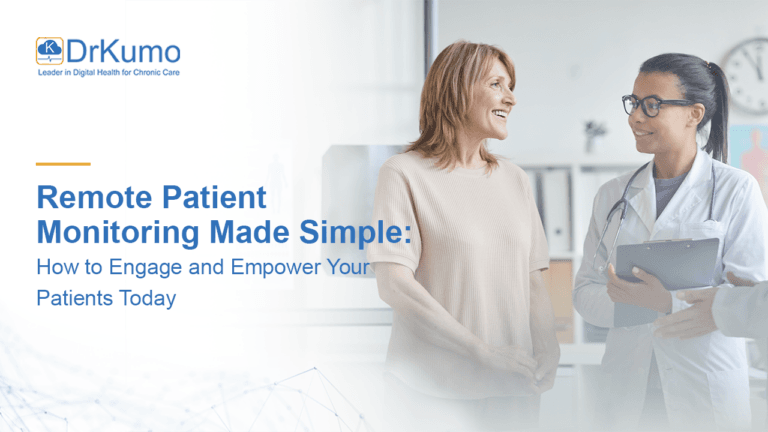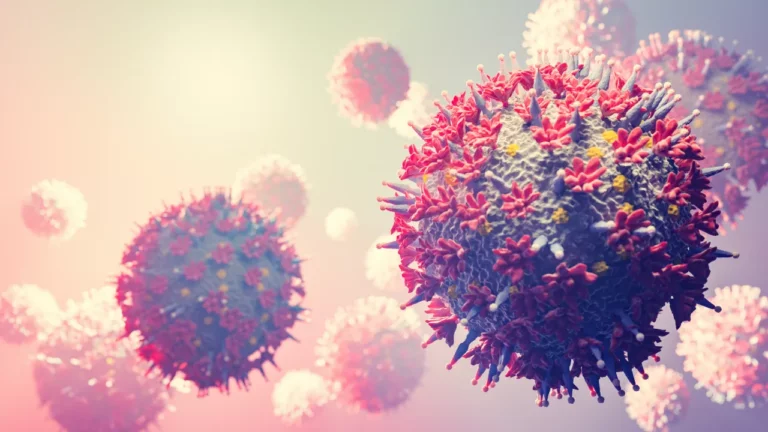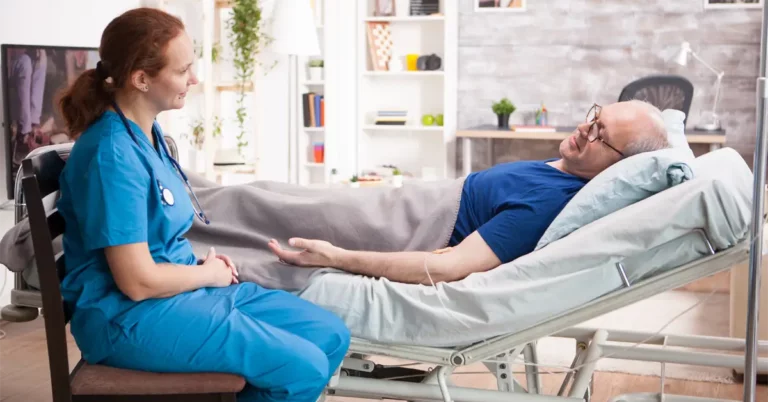According to the U.S. National Health Survey, kids under age five have the highest rate of developing acute health issues, averaging four conditions per year. Acute diseases are illnesses that manifest suddenly and usually last a relatively short amount of time, typically days or weeks. They can range from minor conditions like the common cold to more severe infections like pneumonia. Acute diseases are often caused by viruses, and require urgent or short-term care. In contrast, chronic diseases are health conditions that progress over time and require ongoing medical attention.
Remote Patient Monitoring (RPM) technology has been adopted by many healthcare providers to improve patient care and treatment. RPM allows for real-time monitoring of patients’ health conditions, symptoms, and treatment plans.
The Centers for Medicare and Medicaid Services (CMS) has assigned Current Procedural Terminology (CPT) codes for RPM, which cover both acute and chronic diseases. These codes provide reimbursement for healthcare providers for the services rendered through RPM, allowing patients to receive medical attention and treatment from the comfort of their own homes. The inclusion of codes for both acute and chronic diseases highlights the importance of RPM in managing various health conditions and the recognition of its value by the CMS.
The purpose of this article is to explore the common examples of acute diseases, the difference between acute and chronic illnesses, and the role of remote patient monitoring in managing acute diseases. By understanding the importance of acute disease management, individuals can take proactive measures to prevent the onset of acute illnesses and receive prompt medical attention if necessary.
Acute Disease Examples
Acute diseases can come on suddenly and range from minor to severe conditions. Some of the most common examples of acute diseases include:
- The common cold – a viral infection of the upper respiratory tract that typically lasts a few days to a week.
- Influenza (the flu) – a viral illness that affects the respiratory system and can cause severe symptoms, including fever, fatigue, and body aches.
- Pneumonia – a serious lung infection that can cause difficulty breathing, coughing, and chest pain.
- Broken bones – a sudden injury to a bone that requires prompt medical attention and can often be treated with a cast or surgery.
- Asthma attack – a sudden worsening of asthma symptoms that can lead to difficulty breathing and can be treated with medication or a breathing machine.
- Kidney disease – a sudden onset of symptoms related to kidney function, including increased thirst and urination, fatigue, and swelling.
- Diabetes – a chronic condition that can cause sudden spikes in blood sugar levels, leading to symptoms like increased thirst and hunger, frequent urination, and blurred vision.
- COVID-19 – a virus that shows symptoms of fever, cough, shortness of breath, fatigue, body aches, and loss of taste or smell. In severe cases, it can cause pneumonia, acute respiratory distress syndrome (ARDS), and death.
- Burn – a result of previous injury to the skin caused by heat, electricity, or chemicals, which could lead to pain, disfigurement, infections, chronic pain, contractures, and functional impairment.
- UTI – a type of infection that affects any part of the urinary system, including the bladder, urethra, ureters, or kidney. Symptoms of a UTI can include a strong, persistent urge to urinate, a burning sensation when urinating, cloudy or strong-smelling urine, and lower abdominal pain.
These are just a few examples of acute diseases that can require prompt medical attention. It’s important to be aware of the symptoms of these conditions and seek medical advice if you are experiencing any of these symptoms.
Chronic Disease vs. Acute Disease
Acute diseases and chronic diseases are two different types of medical conditions that can affect individuals. Acute diseases come on suddenly and often last for a short amount of time, ranging from a few days to a few weeks. Chronic diseases, on the other hand, develop slowly over time and can last for a person’s entire life.
One of the key differences between acute and chronic diseases is their onset and duration. Acute diseases come on suddenly and are often caused by a viral or bacterial infection, injury, or other sudden event. Chronic diseases, on the other hand, usually develop slowly over time and may be caused by a combination of genetic and environmental factors.
Another difference between acute and chronic diseases is the severity of their symptoms. Acute diseases are often characterized by sudden and severe symptoms that may require urgent or short-term care. Chronic diseases, on the other hand, may cause symptoms that are more persistent and less severe, but can still have a significant impact on a person’s health and quality of life.
It’s important to know the difference between acute and chronic diseases so that individuals can seek the right treatment for their conditions. With the help of remote patient monitoring, individuals with chronic diseases can receive ongoing medical attention and manage their conditions from the comfort of their own homes.
Remote Patient Monitoring in Acute Disease Management
Remote patient monitoring (RPM) is a technology-based healthcare solution that allows patients to receive medical attention and manage their health conditions from the comfort of their own homes. This innovative approach to healthcare is particularly useful for individuals with acute diseases, as it can help manage their symptoms and provide treatment quickly and efficiently.
One of the main benefits of RPM in acute disease management is that it provides patients with real-time access to their medical data, allowing them to monitor their symptoms and track the progression of their conditions. With RPM, patients can communicate with their healthcare providers remotely, receive medical advice, and make changes to their treatment plans as needed.
In addition to providing patients with real-time access to their medical data, RPM can also help individuals with acute diseases receive timely medical attention. For example, if an individual is experiencing an asthma attack, they can use RPM to send an alert to their healthcare provider and receive medical advice quickly.
Another benefit of RPM in acute disease management is that it can help individuals with acute conditions to self-manage their symptoms and prevent their conditions from getting worse. For example, individuals with acute infections can use RPM to monitor their symptoms, track their medication use, and receive advice on lifestyle changes that can help relieve their symptoms.
DrKumo RPM Technology Helps Manage Acute Illnesses
Acute diseases, such as flu, pneumonia, and broken bones, can come on suddenly and require urgent medical attention. At the same time, managing acute diseases often requires continuous monitoring and adjustments to treatment plans. This is where DrKumo‘s remote patient monitoring solution comes in.
DrKumo is a technology leader in real-time remote patient monitoring solutions for a range of health conditions, including acute diseases. With a user-friendly solution powered by state-of-the-art technology, DrKumo empowers patients to manage their health conditions in the comfort of their homes, while also providing healthcare providers with real-time intelligence for timely intervention.
DrKumo’s RPM technology is HIPAA-compliant and mobile-enabled, making it accessible and convenient for patients to use. It’s equipped with an AI/ML engine, providing accurate and personalized health data, which can be used to make informed treatment decisions. This results in improved health outcomes and reduced hospital readmissions.
With a culture that prioritizes innovation, collaboration, and technology, DrKumo revolutionizes the way people access quality healthcare. By providing effective solutions for both patients and healthcare providers, DrKumo is transforming the healthcare industry and making a positive impact on people’s lives.
Takeaways
Acute diseases are a common and often pressing health concern that can have a significant impact on an individual’s quality of life. These conditions require prompt and effective treatment to prevent them from getting worse and causing long-term health issues.
Remote patient monitoring (RPM) is a technology-based healthcare solution that can help individuals manage their acute diseases more effectively. By providing real-time access to medical data, RPM allows individuals to monitor their symptoms, receive medical advice, and make changes to their treatment plans as needed.
Chronic diseases and acute diseases differ in their duration and impact, with chronic diseases often having a more long-term impact on an individual’s health. However, RPM can also play a role in managing chronic diseases, by providing individuals with the tools and support they need to self-manage their conditions and prevent them from getting worse.
Don’t wait until your health condition worsens – start taking control of your health today by speaking to your doctor about incorporating RPM into your healthcare plan. Contact DrKumo now.








